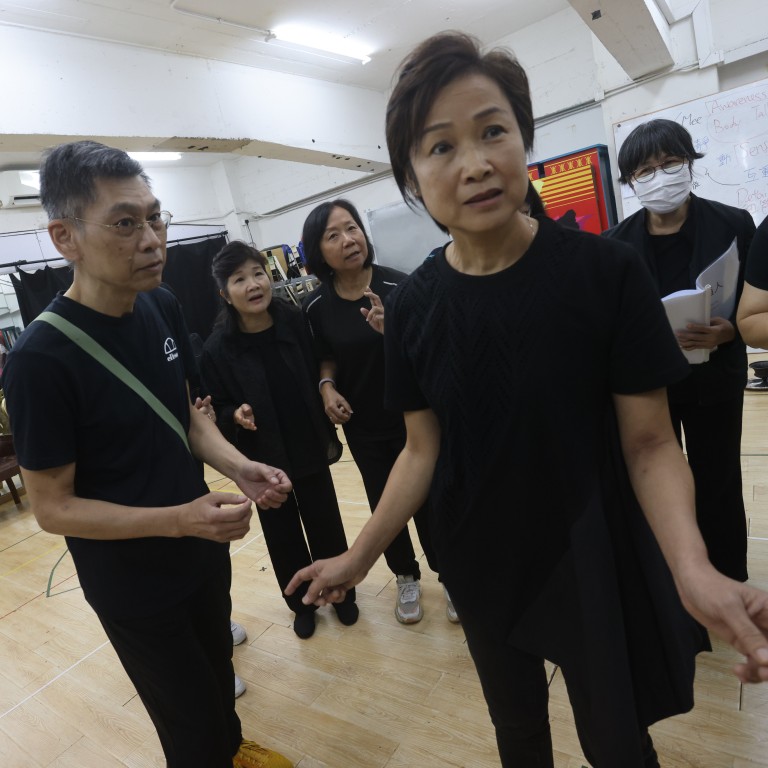
Drama training gives Hong Kong retirees, including cancer survivor, self-worth, new skills and a platform to tell their life stories
- Life education group Arts’ Options aims to develop Hong Kong’s first professional troupe of older-age actors through classes in how to move and speak on stage
- The group’s drama training for over-55s has improved the well-being and self-worth of participants, and helped one retiree through cancer treatment
After enduring arduous rounds of chemotherapy and electrotherapy, Berthold Chung took to the stage to share his cancer survival tale in a solo theatrical performance.
The four-minute monologue intertwined his life experiences, from graduating from college in 1977 to completing treatment last year.
“Drama experiences have given me strength in handling life adversities,” says the 69-year-old retired Hong Kong secondary school principal. “They are extra healing forces and obviously sped up my recovery.”
Engaging in drama activities has shown promising benefits for older people like Chung, improving their psychological and physical well-being, according to research and elderly people who have taken part in them.
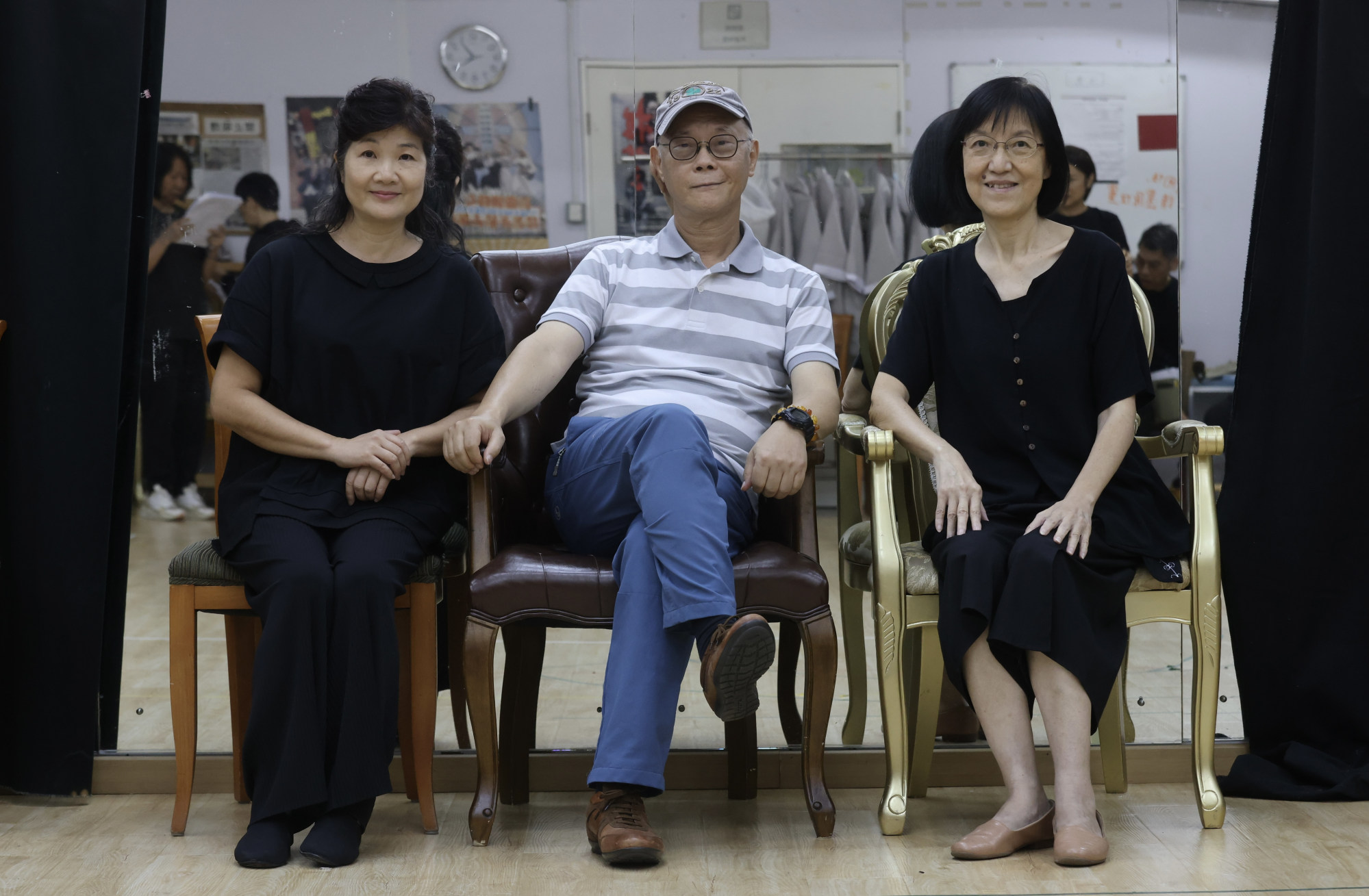
Drama provides a creative outlet for self-expression, fosters social connections, enhances cognitive ability, and promotes physical activity, all of which support healthy ageing.
‘It was sensory overload’: how sober travel is driving a new tourism trend
With encouragement from his family and also from his “daughter” and “sister” on stage, drama helped him to combat the illness.
“My mood became gloomy when I had to stop many activities,” says Chung, who continued his drama training as lessons moved online during the pandemic, “but there was no other way, as I had to go to the hospital for electrotherapy three times a week.
“Whenever I had some free time, I would think about my two goals. One was to survive so that I could complete this drama course; the other, if things went well, I could participate in the graduation performance.
“Drama became the driving force that accompanied me throughout the cancer treatment process.”
Hong Kong arts-based life education organisation Arts’ Options founded the drama course Chung took for people over the age of 55.
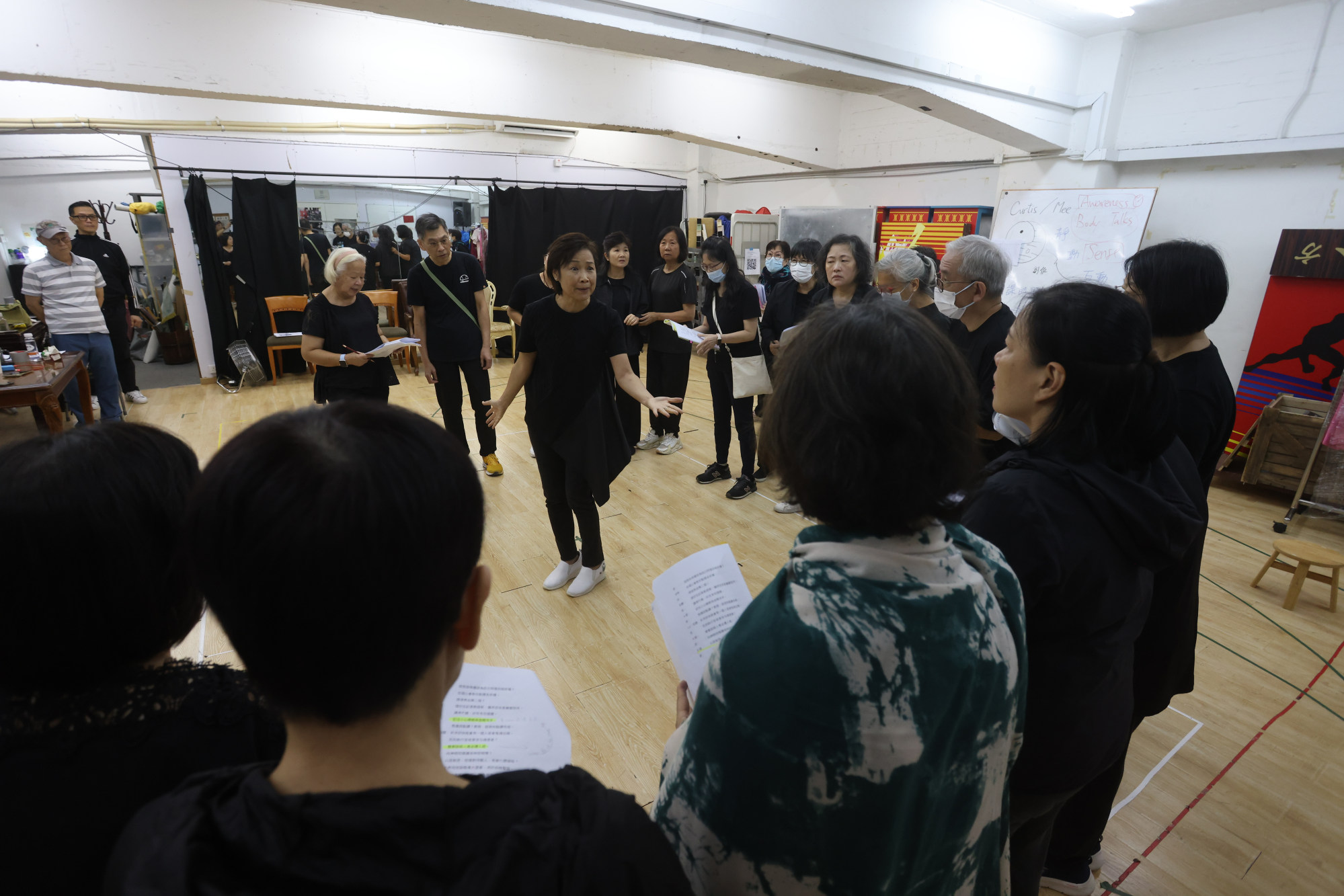
Sponsored by Link Together Initiatives, the charity programme of Asia’s largest real estate investment trust, the drama course aims to produce the first professional acting troupe in Hong Kong made up exclusively of older people.
Founded in 2006 by theatre director Yukio Ninagawa and with an average age of 75, the Saitama Gold performing group made its Hong Kong debut in 2014.
Nine years after its establishment, Ninagawa’s team had remarkably lost only one member to old age. One of the actors, who had previously used a wheelchair, was able to walk again, Ninagawa told the Post in 2014.
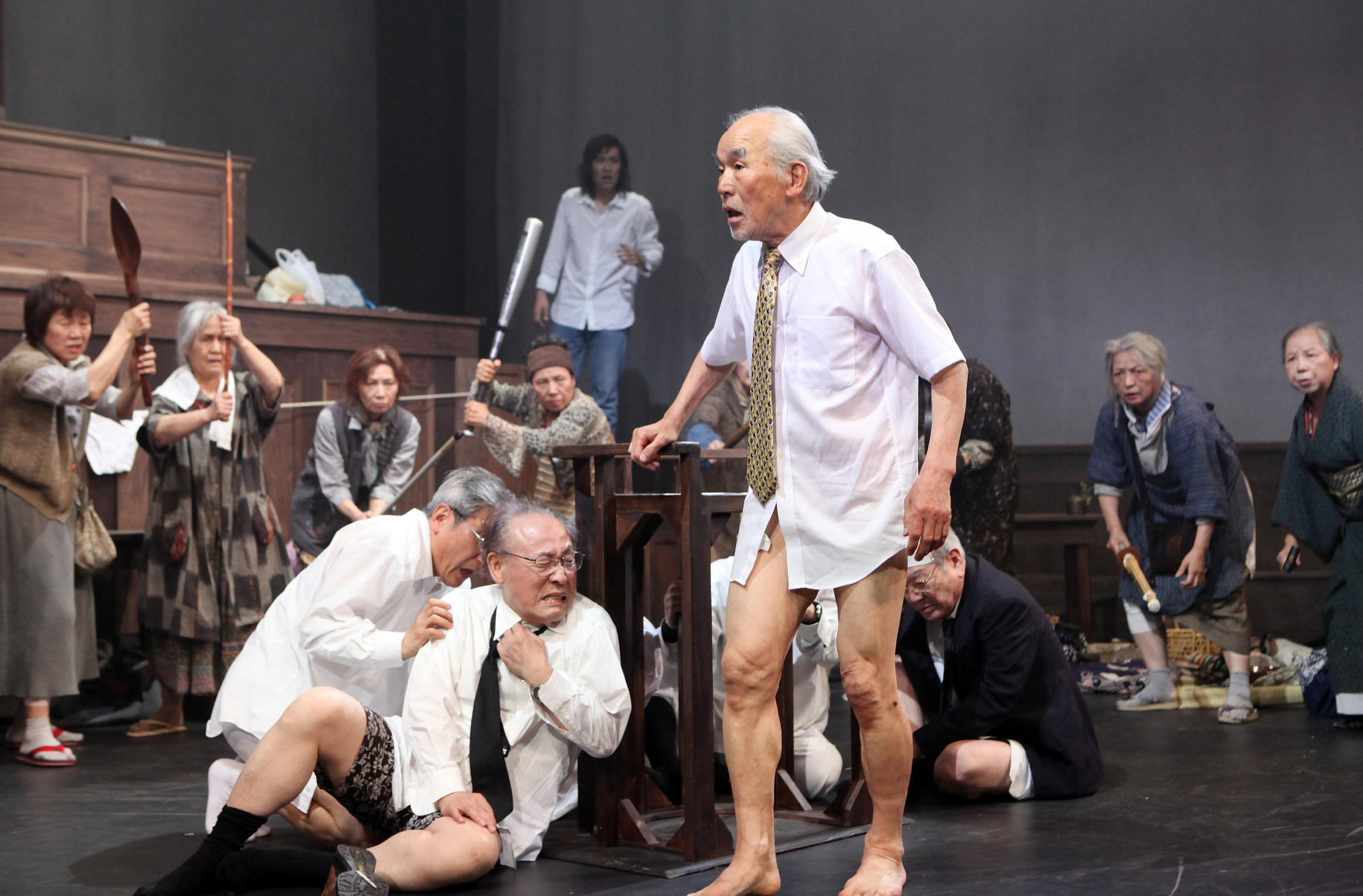
The Saitama Gold troupe wound down in January 2021, but by then it had given fans of theatre in Hong Kong such as Po the idea of cultivating elderly people to become professional actors – especially the “young old”, she says, who are still independent.
Po was convinced of the therapeutic value of performance art and, through the drama programme, organised workshops to teach participants games to help them improve their movement, speaking, interaction and creativity, and learn scriptwriting.
How to age well: 93-year-old marathoner’s 10 tips for a fit and active life
For Chung, a dance workshop and clown training sessions were transformative. Not a natural athlete, he has begun to explore body movement.
“In my previous speaking engagements, I struggled with movement and my body wasn’t cooperating well. However, theatre has helped me discover that … our body movements are actually also a form of dance, free from rigid rules.”
He adds: “Developing our own rhythm is key, while letting go and being responsive – to music and classmates – are paramount. By relaxing the body and acknowledging its limitations, we can experience breakthroughs. It’s not merely about learning dance steps but liberating the body in harmony with the melody and nurturing our imagination.”
For Po, the programme’s greatest value lies in developing self-worth, not just helping participants pass the time.
“We don’t have a lot of time to kill,” she said. “We want the second half of our life to be fulfilling, to even develop another career or chase the dream that we never dreamed before.”
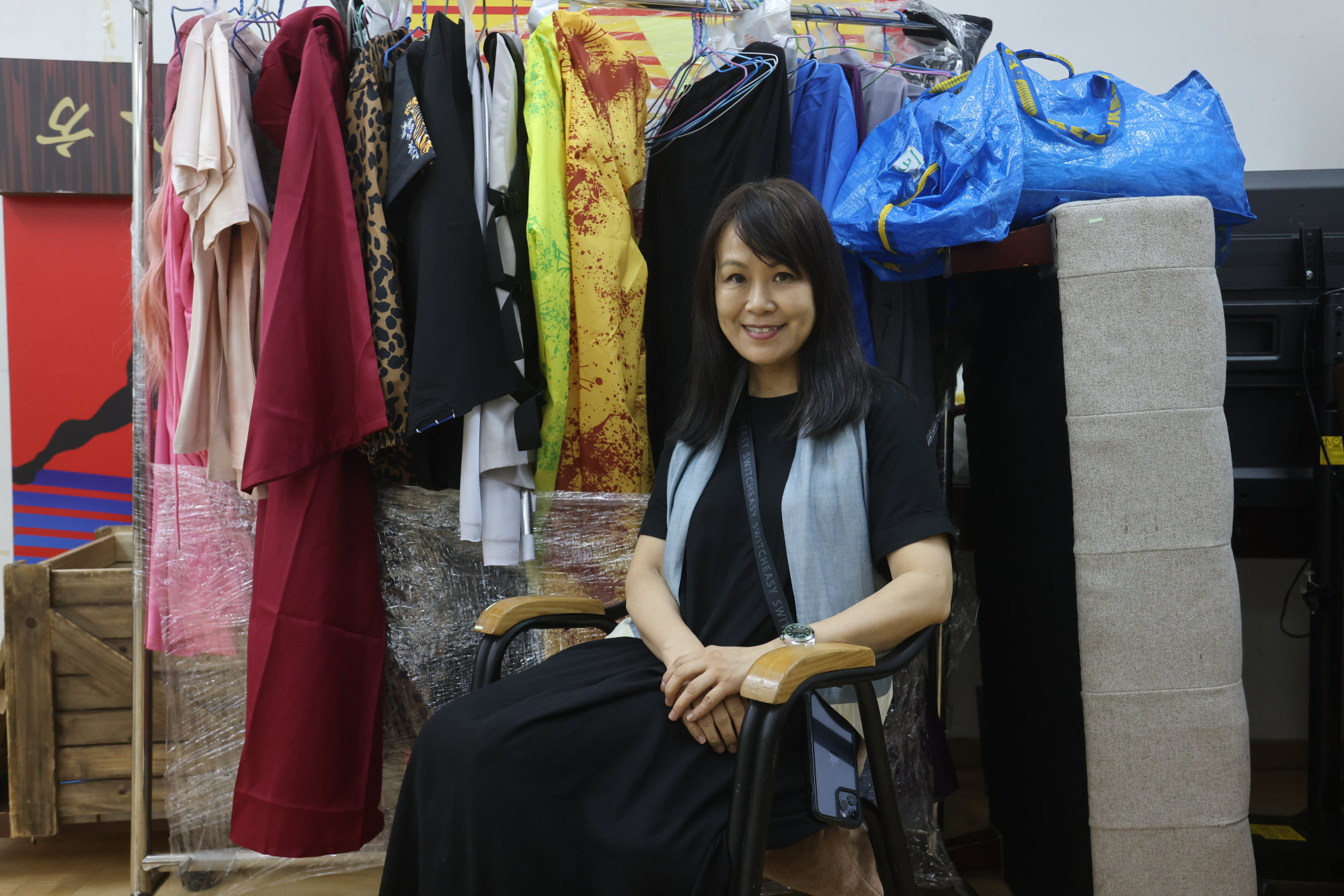
Po and her team have been preparing for a show called The Libation Bearers, a Greek tragedy adapted into Cantonese. It has a cast of 43 performers with an average age of 65.6.
Maggie Ng, aged 60, is one. With diminishing physical strength and memory, she gradually developed her own approach to grappling with rehearsals, including recording her lines and playing them back repeatedly, and jotting down actions and movements in notebooks for reference.
As a bank manager until she retired, Ng had always been expected to excel. After entering the world of theatre, her mindset changed.
Whether it was putting on make-up during rehearsals or playing the role of a clown in workshops, she felt like she was wearing a protective mask, allowing her to express herself more naturally and fearlessly reveal her vulnerabilities.
“When you are willing to express yourself on a deeper level, you also become more accepting of yourself, embracing your limitations and acknowledging what you can’t achieve. You learn to appreciate yourself,” she says.
Don’t stress about it – 8 expert tips to manage and cope with adversity
Single parent Caroline Ting used her own voice in scripting and acting the intimate story of her family over four generations in a showcase at the end of her second year of drama training.
Since her son got married and left Hong Kong in 2019, she has lived alone.
“It was like a calling,” Ting says of joining the programme four years ago seeking to do something she had never tried before. It was hard, she says, as she is “very shy” and had no drama experience.
“It was physically straining and mentally challenging,” she adds. Lines and cues were hard to remember.
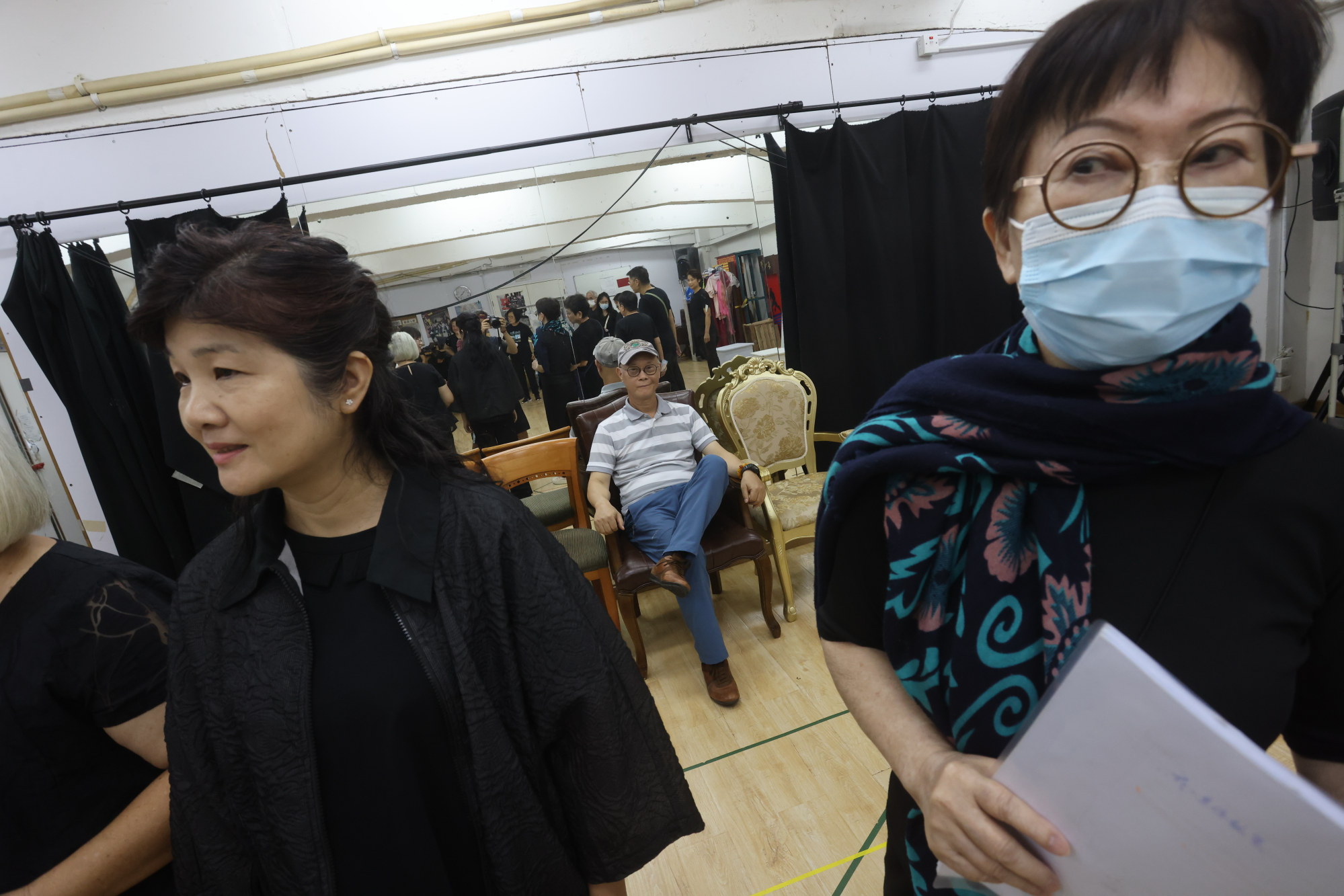
Now the 68-year-old former English teacher has developed a passion for drama, and she wakes up early with a sense of purpose and community.
With help from instructors and classmates, Ting described her longing for her son and the grandson she has never met in a monologue about four generations of her family. She took the English version of her story to the UK in May this year with 10 other classmates.
“I used to envy some of my classmates, who have been involved in drama since they were very young,” she says, adding that drama has now become a central part of her life.
Hong Kong film star Brigitte Lin’s new role as ambassador for dementia project
Drama therapy helps people solve personal and social problems by using role play, voice work, movement and storytelling to help them explore and reflect on their feelings.
This helps them to build self-awareness and self-confidence while having some fun with others.
Drama therapist Si-Yeung Li says it is common for older people to equip themselves with diverse skills to ensure “they still function as someone who can give to others”; however, they often overlook their own needs and wants.
Li emphasises the distinction between drama therapy and drama classes.
While the latter focus primarily on learning goals, including the quality of performance and the development of dramatic skills, drama therapists focus more on personal growth and providing psychological support, she says.
“Our major goal would be how we design different dramatic activities to help support [participants’] needs,” she adds.
Li recalls getting heartfelt feedback at the end of a workshop from a participant who admitted not having realised “that I want to be listened to, to be heard, [and] to be able to have the space to talk about my own things rather than just focusing on learning more skills”.
It stimulates their imagination and helps to revitalise them so they’re more attuned to their surroundings.
“They bring their own colour into the scene so they’re able to see it in a playful way,” she says, although at first they may resist until they are assured that it’s a game and not reality, at which point they can open up.
Li says acting provides a platform for individuals to share their stories through physical gestures and the tone of their voice.
“When they’re engaged in the creative process, they need to be very in the moment, so through this process we try to bring them back to the present.”
As a beneficial way to explore life stories in old age, drama therapy is gaining recognition but is still fairly niche, especially in Asia, she adds.

